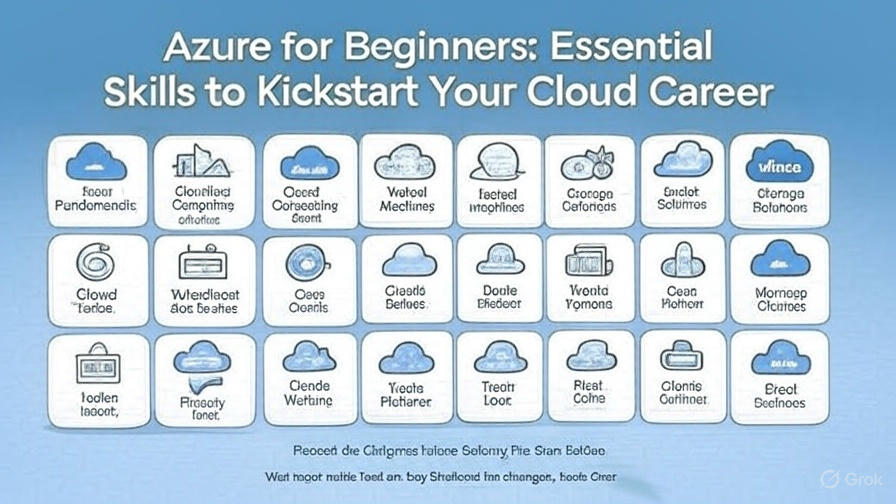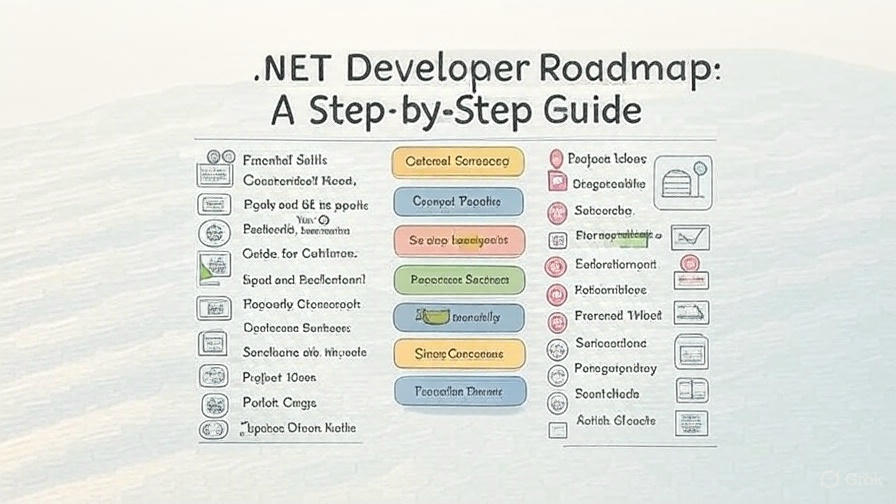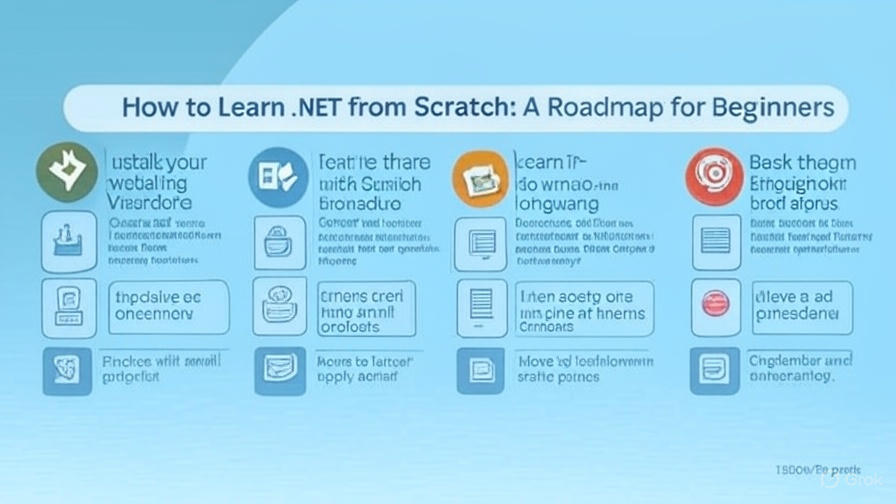Azure for Beginners: Essential Skills to Kickstart Your Cloud Career

Strong 8k brings an ultra-HD IPTV experience to your living room and your pocket.
Embarking on a cloud career can be both exciting and daunting, especially when you’re just starting out. Azure, Microsoft’s robust cloud computing platform, offers a plethora of opportunities for beginners to dive into the world of cloud computing. Whether you’re aiming to become an Azure Solution Architect or simply want to understand the basics, this guide will provide you with the essential skills and knowledge to kickstart your journey.
Before we dive into the essential skills, it’s important to understand why Azure is a popular choice for many organizations. Azure offers a wide range of services, from computing and storage to AI and machine learning. Its scalability, flexibility, and security features make it an attractive option for businesses of all sizes. If you’re interested in becoming an Azure Solution Architect, you might want to check out this azure solution architect training online course. Additionally, understanding the azure solution architect certification cost can help you plan your learning journey more effectively.
Understanding the Basics of Cloud Computing
Before you delve into Azure, it’s crucial to grasp the fundamentals of cloud computing. Cloud computing refers to the delivery of different services through the internet, including data storage, servers, databases, networking, and software. Here are some key concepts to understand:
Cloud Service Models: The three primary cloud service models are Infrastructure as a Service (IaaS), Platform as a Service (PaaS), and Software as a Service (SaaS). Azure offers all three models, allowing businesses to choose the one that best fits their needs.
Cloud Deployment Models: Cloud deployment models include public cloud, private cloud, and hybrid cloud. Azure supports all these models, providing flexibility for different business requirements.
Scalability and Elasticity: One of the main advantages of cloud computing is its ability to scale resources up or down based on demand. This ensures that businesses only pay for what they use.
Getting Started with Azure
Now that you have a basic understanding of cloud computing, let’s explore how to get started with Azure. Azure provides a user-friendly platform that makes it easy for beginners to learn and experiment.
Creating an Azure Account: The first step is to create an Azure account. Microsoft offers a free tier that includes popular services like virtual machines, databases, and AI services. This is a great way to get hands-on experience without any upfront costs.
Azure Portal: The Azure portal is a web-based interface that allows you to manage your Azure resources. It provides a comprehensive dashboard where you can monitor your services, create new resources, and manage your account.
Azure CLI and PowerShell: For those who prefer command-line interfaces, Azure offers the Azure Command-Line Interface (CLI) and Azure PowerShell. These tools allow you to manage your Azure resources using scripts, making it easier to automate tasks.
Azure for Beginners: Essential Skills to Kickstart Your Cloud Career
To build a successful cloud career with Azure, you need to develop a set of essential skills. These skills will not only help you understand the platform better but also make you more competitive in the job market.
Virtual Machines: Virtual machines (VMs) are one of the core services offered by Azure. Learning how to create, configure, and manage VMs is crucial. You should understand the different types of VMs, their pricing models, and how to scale them based on demand.
Storage Services: Azure offers various storage services, including blob storage, file storage, and queue storage. Understanding how to use these services to store and manage data is essential. You should also learn about data redundancy and backup options to ensure data durability.
Networking: Networking is a fundamental aspect of cloud computing. Azure provides services like Virtual Networks (VNets), Azure Load Balancer, and Azure Application Gateway. Learning how to configure these services to ensure secure and efficient communication between your resources is important.
Security: Security is a top priority for any cloud platform. Azure offers a range of security features, including Azure Security Center, Azure Key Vault, and Azure Active Directory. Understanding how to implement these features to protect your data and resources is crucial.
Databases: Azure supports various database services, including Azure SQL Database, Azure Cosmos DB, and Azure Database for MySQL. Learning how to create, manage, and scale these databases is essential for any cloud professional.
Azure for Beginners: Essential Skills to Kickstart Your Cloud Career : Azure offers a range of AI and machine learning services, including Azure Machine Learning, Azure Cognitive Services, and Azure Bot Service. Understanding how to use these services to build intelligent applications can give you a competitive edge in the job market.
Hands-On Practice and Certification
While theoretical knowledge is important, hands-on practice is essential for mastering Azure. Here are some ways to gain practical experience:
Azure Labs: Microsoft offers a range of hands-on labs that allow you to practice different Azure services. These labs provide step-by-step instructions and a safe environment to experiment without affecting your production environment.
Azure Certifications: Obtaining Azure certifications can significantly enhance your cloud career prospects. Microsoft offers various certification paths, including Azure Fundamentals, Azure Administrator Associate, and Azure Solutions Architect Expert. These certifications validate your skills and knowledge in Azure.
Community and Forums: Engaging with the Azure community through forums, user groups, and social media can provide valuable insights and support. Platforms like Microsoft Tech Community, Reddit, and Stack Overflow are great places to ask questions, share knowledge, and stay updated on the latest Azure developments.
Real-World Applications of Azure
Understanding how Azure is used in real-world scenarios can provide valuable context for your learning journey. Here are some examples:
Enterprise Applications: Many enterprises use Azure to host their mission-critical applications. Azure’s scalability and reliability make it an ideal platform for enterprise workloads.
Startups: Startups often leverage Azure’s flexible pricing models and scalable services to quickly deploy and scale their applications. Azure’s support for open-source technologies also makes it an attractive option for startups.
Government and Education: Azure is widely used in the government and education sectors for its robust security features and compliance certifications. Azure Government and Azure for Education provide specialized services tailored to these sectors.
Azure for Beginners: Essential Skills to Kickstart Your Cloud Career
Building a cloud career with Azure requires continuous learning and adaptation. As technology evolves, so do the skills and knowledge required to stay competitive. Here are some tips to help you stay ahead:
Stay Updated: Cloud technology is constantly evolving. Stay updated with the latest Azure developments by following Microsoft’s official blogs, attending webinars, and participating in conferences.
Networking: Building a professional network can open up new opportunities and provide valuable insights. Connect with industry experts, attend meetups, and join online communities to expand your network.
Specialization: As you gain more experience, consider specializing in a specific area of Azure. Whether it’s AI, data analytics, or security, specializing can make you more valuable in the job market.
Conclusion
Embarking on a cloud career with Azure is an exciting journey filled with opportunities for growth and learning. By understanding the basics of cloud computing, developing essential skills, gaining hands-on practice, and staying updated with the latest developments, you can build a successful career in the cloud. Azure for Beginners: Essential Skills to Kickstart Your Cloud Career offers a comprehensive platform to kickstart your journey. So, dive in, explore, and unlock the potential of Azure to accelerate your cloud career.
Frequently Asked Questions
What are the benefits of using Azure for cloud computing?
Azure offers several benefits, including scalability, flexibility, and robust security features. Its wide range of services, from computing and storage to AI and machine learning, makes it an attractive option for businesses of all sizes.
How can I get started with Azure?
To get started with Azure, you can create a free account and explore the Azure portal. Microsoft also offers a free tier that includes popular services like virtual machines, databases, and AI services.
What are the essential skills for a cloud career with Azure?
Essential skills for a cloud career with Azure include understanding virtual machines, storage services, networking, security, databases, and AI services. Hands-on practice and obtaining certifications can also enhance your skills.
What are Azure certifications, and how can they benefit my career?
Azure certifications validate your skills and knowledge in Azure. Microsoft offers various certification paths, including Azure Fundamentals, Azure Administrator Associate, and Azure Solutions Architect Expert. These certifications can significantly enhance your career prospects.
How can I gain hands-on practice with Azure?
You can gain hands-on practice with Azure through Azure labs, which provide step-by-step instructions and a safe environment to experiment. Engaging with the Azure community through forums and user groups can also provide valuable insights and support.
What are the real-world applications of Azure?
Azure is used in various real-world scenarios, including enterprise applications, startups, government, and education sectors. Its scalability, reliability, and robust security features make it an ideal platform for different business requirements.
How can I stay updated with the latest Azure developments?
To stay updated with the latest Azure developments, you can follow Microsoft’s official blogs, attend webinars, and participate in conferences. Engaging with the Azure community through forums and social media can also provide valuable insights.
What are the different cloud service models offered by Azure?
Azure offers three primary cloud service models: Infrastructure as a Service (IaaS), Platform as a Service (PaaS), and Software as a Service (SaaS). These models provide flexibility for different business requirements.
What are the different cloud deployment models supported by Azure?
Azure supports three cloud deployment models: public cloud, private cloud, and hybrid cloud. These models provide flexibility for different business requirements and compliance certifications.
How can I specialize in a specific area of Azure?
As you gain more experience with Azure, you can consider specializing in a specific area such as AI, data analytics, or security. Obtaining specialized certifications and gaining hands-on practice can make you more valuable in the job market.
Note: IndiBlogHub features both user-submitted and editorial content. We do not verify third-party contributions. Read our Disclaimer and Privacy Policyfor details.






